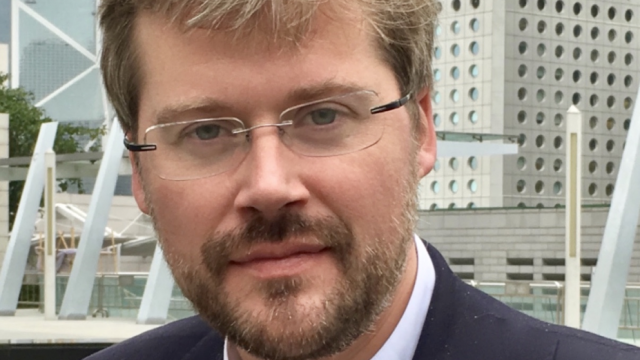Solitude, calm, and slow aren’t words normally associated with Moscow, but for Chinese journalist and teacher Tommy Yang, the Russian capital is a peaceful retreat from the bustle of Beijing. Since moving to Russia to be with his family in 2015, Yang says he has tried to encourage Russians to take an interest in their eastern neighbor.
I was born in a Central Chinese province called Kunan. It was a very small city that had very little going on, so, like most people in China I wanted to study hard to move to the big city. Education is very stressful in China, you have to be good enough to get into the best schools for each level of education or you stand no chance of ever getting into a good college. I met my Russian wife at college and I visited her in Moscow in 2003. It was my first time in Russia.
Russian cuisine doesn’t have as rich a variety as China. It’s all shchi, potatoes, borscht and cutlets here. I prefer Georgian food, it reminds me a lot of Western China, especially the dumplings. Other food I like here is the Chaikhona No.1 chain for Central Asian cuisine as it’s exactly the same as the food in our Western province Xinjiang and our Uighur minority. It’s funny because the Chaikhona No.1 on Arbat has tried to rebrand itself for Chinese tourists in the area by including a sign reading “the taste of Xinjiang.”
There are three categories of Chinese food in Moscow. First, there are restaurants run by Chinese staff and are authentic. The biggest of these is China Dream near the Chinese embassy. Most of the Chinese people living in Russia are from our northeast – this means huge, heavy meals with big portions designed to share. Second, there are westernized restaurants like Bruce Lee here which make smaller portions. The food is authentic but it’s the dining culture which differs since you only eat one main dish. If I’m not choosing from at least three main dishes I’m not satisfied. And. finally, there are Asian wannabees. These places are inconsistent and I never get dishes the way I expect. As far as they are concerned, Asian cuisines seem to be all the same and so the dishes don’t vary very much.
The number of Chinese people in Moscow is quite small. You know there are only around 10,000 Chinese students studying here in Russia. There are about 328,000 in the U.S. alone – so this “turn to the East” seems very exaggerated.
There is a lot of noise about relations with China but, in all honesty, interest in China here isn’t exactly inspiring. Very few students sign up for language classes at the school I teach at. I teach a modern culture course at the Higher School of Economics that generates interest because it’s different to what people are used to. Russian teaching is overly focused on ancient China and traditional tea-drinking ceremonies, whereas mine focuses on modern life and contemporary issues.
Russian people really don’t like small talk. I wouldn’t say they’re cold, but they’re definitely closed off and keep themselves to themselves. In China people greet strangers like old friends, though this can be superficial. I’ve had people shaking my hand, introducing themselves and asking all about my family, only for them to repeat the same routine a month later, having forgotten they’d even met me. Russians can be difficult, but at least when you’ve truly connected you have a friend for life.
For a Westerner this might sound strange but Russia is very peaceful from a Chinese perspective – the rhythm of life here is slower. Take the metro, for example. Yes, it can be busy at rush hour, but this is nothing compared with China. Back home, people are really aggressive. They push, shove, and shout to race into the subway. Here that just doesn’t happen. In general, people respect personal space here.
A Message from The Moscow Times:
Dear readers,
We are facing unprecedented challenges. Russia's Prosecutor General's Office has designated The Moscow Times as an "undesirable" organization, criminalizing our work and putting our staff at risk of prosecution. This follows our earlier unjust labeling as a "foreign agent."
These actions are direct attempts to silence independent journalism in Russia. The authorities claim our work "discredits the decisions of the Russian leadership." We see things differently: we strive to provide accurate, unbiased reporting on Russia.
We, the journalists of The Moscow Times, refuse to be silenced. But to continue our work, we need your help.
Your support, no matter how small, makes a world of difference. If you can, please support us monthly starting from just $2. It's quick to set up, and every contribution makes a significant impact.
By supporting The Moscow Times, you're defending open, independent journalism in the face of repression. Thank you for standing with us.
Remind me later.






